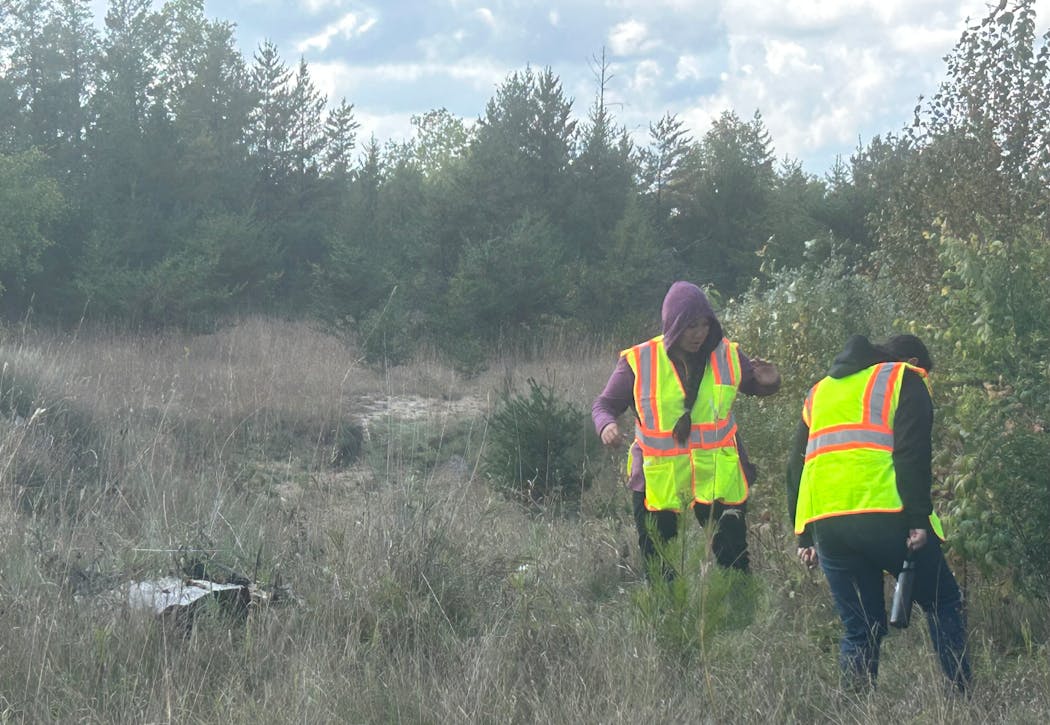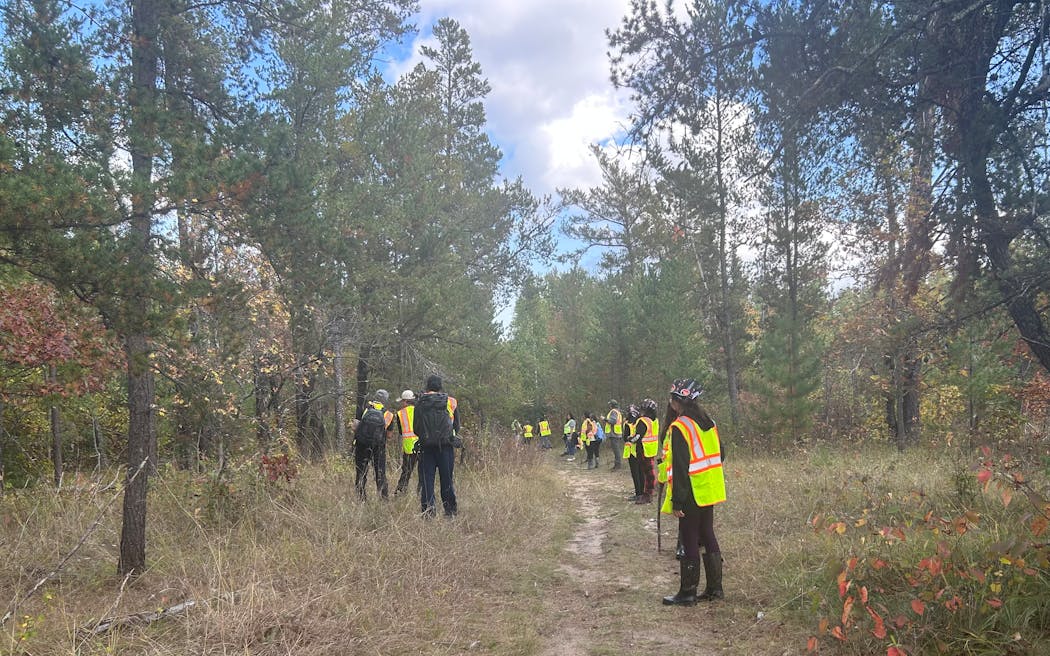BEMIDJI — Dozens of volunteers in yellow reflective vests pushed through dry weeds and tree branches on the south end of a mobile home park here in search of any sign of a teenage girl who has been missing for nearly two years.
The wide-ranging search for Nevaeh Kingbird was the first supported by the state's new Missing and Murdered Indigenous Relatives [MMIR] office and the largest of the 13 searches for the girl conducted by the Bemidji Police Department. The two-day event earlier this week included about 200 friends, family, community members and law enforcement officials covering a grid of about 150 acres through waist-high fields, forest area and swampland.
Teddi Wind, Nevaeh's mother, has already combed much of this land in her ongoing search for her daughter. She appealed to the MMIR for help just as the state agency has started its work of addressing the issue of missing and murdered indigenous women. The timing was right to conduct a large search: Summer is tricky because of leaf-cover; fall is hard because of the leaves on the ground. Late September is right in between, according to Bemidji Police Chief Mike Mastin.
Wind spent Tuesday afternoon with one of the search teams. Dressed in weather-proof boots and a hooded sweatshirt, she shared globs of No-Bite-Me bug repellent with strangers.
During the search, she said she felt gratitude — like something was actively being done and people were making a difference.
"Toward the end I got super emotional," she said. "I didn't get any of the answers I was seeking. I don't know what else to do. What do I do from here?"
The volunteers had canvassed in close contact, hoping to spot any passed-over evidence that might remain in this wooded area. Law enforcement officials on the scene monitored trackers that followed the volunteers' movements and showed the ground that had been covered.
Volunteers were also looking for signs of Jeremy Jourdain, who was 17 when he left a Bemidji party in October 2016 and didn't return home.
Nevaeh was last seen in the early hours of Oct. 22, 2021, at Southview Terrace Mobile Home Park in Bemidji. She hopped out the window of a trailer and hasn't been heard from since. She was 15 years old at the time, her brown hair styled with a streak of blonde in the front. Nevaeh was reportedly wearing jeans and a red sweatshirt with a Chicago Bulls logo circled by a headdress — a sweatshirt that belonged to her older sister.
She played basketball and volleyball and always had a bit of paint on her because she was an artist. She has a scar on her right eyebrow. She was always redecorating her room and thought everyone deserved a friend, according to Wind. She is fluent in Ojibwe.
Her mother won't commit to a single idea about what became of Nevaeh.
"If I go with one theory, it will drive me crazy," Wind said, "so I have to keep every theory on the table."
Tuesday's search through the morning and afternoon brought a mix of emotions for Nevaeh's older sister, LaKaylee Kingbird, 18. In the time that Nevaeh has been gone, she has graduated from Bug-O-Nay-Ge-Shig School, a tribal school near Bena, Minn., and started working toward a career in law enforcement.
"A lot runs through my head when I walk through these fields," she said, "even if I walked through them already — thinking about what if we found something connected to her?"
The two shared a bedroom and Nevaeh, known for her big heart and positive attitude, would tell stories from her day before they went to sleep. LaKaylee thinks of her sister daily and said if circumstances were different, Nevaeh would be out in the woods searching for a missing person.
She was a true Indigenous girl, LaKaylee said, with a love of nature.
While the search brought no definitive clues, Mastin said a few found items were sent to the Bureau of Criminal Apprehension for testing.
The MMIR handled the logistics of the search: Checking in volunteers, coordinating shuttles, passing out search bags complete with reflective vests, whistles and walking sticks. Director Juliet Rudie dipped out of headquarters to check in on the teams in the field and said she was overwhelmed by the amount of ground to be covered.
"All I could think was if this was my child, I'd be beside myself and I'd want every inch of that area to be searched to see if there was anything out there," she said.
In Minnesota, 8% of murdered women and girls between 2010 and 2018 were Native American — though Native American females make up 1% of the population. Between 27 and 54 Native American women and girls were missing any month from 2012 to 2020.
Mastin called the day a success — even if it didn't bring closure.
"We brought awareness," he said. "There is a possibility that Nevaeh and Jeremy are somewhere else alive and well, or there is somebody who knows something about them. Spreading the message might cause them to come forward."
Wind is waiting for that call. Her phone's outgoing message is for Nevaeh: If it's you, she asks in the recording, could you please leave a message?
"Mommy misses you and loves you," she says.

'Safe recovery sites' would offer syringes, naloxone and more to people using drugs. The plan could be in peril.
New Minnesota GOP leaders seek peace with party's anti-establishment wing

Who is Republican Lisa Demuth, Minnesota's first House speaker of color?



